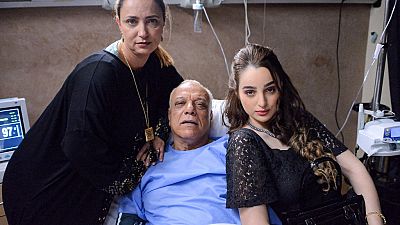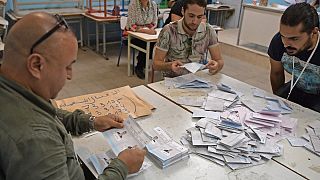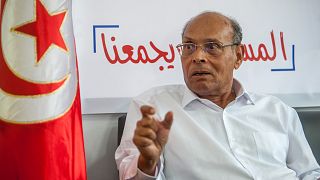Tunisia
A TV series on polygamy broadcast during Ramadan is causing controversy in Tunisia, a pioneering Arab country on women's rights, where multiple unions have been banned for decades.
The main character of the series "Baraa" (Innocence), Wannas, beats a rosary and demands, from the third episode onwards, to be united with a second wife. In front of his wife and children, he asserts that he has the right to do so in the name of Sharia, the Islamic law, which he says is "above all other laws".
Broadcast on the private channel El Hiwar Ettounsi after the break of the fast since the beginning of Ramadan, the holy month of Muslims, the series has triggered controversy by addressing two practices prohibited by Tunisian law: polygamy and religious marriage called "orfi".
"It is out of the question to discuss these issues again", since the Personal Status Code (CSP), promulgated on 13 August 1956 by former president Habib Bourguiba, "has ruled on these practices", denounced the anti-Islamist Free Destourian Party (PDL) in a statement.
Revolutionary legislation
The CSP, enacted five months after the country's independence, is revolutionary legislation that granted Tunisian women rights unprecedented in the Arab world. It abolished polygamy, prohibited repudiation and instituted judicial divorce. Only civil marriage is recognised by law.
For the LDP, "these crimes" (polygamy and customary marriage, editor's note), punishable by one year's imprisonment, have reappeared in Tunisian society since the Islamist-inspired party Ennahdha came to power in 2011.
The PDL, a sworn enemy of Ennahdha whose dissolution it is calling for, warns against "an attack on the dignity of women if obscurantist forces are in decision-making positions".
Customary marriage
Polygamy and customary marriage are "forms of violence against women" and their evocation "normalises the culture of impunity", says the organisation Aswat Nissa (Voice of Women) on its Facebook page. The NGO has called for the intervention of the Tunisian High Audiovisual Authority (Haica), a body that controls media content.
Sociologist Mohamed Jouili is reassuring: the series "is a work of dramatic art that does not systematically reflect Tunisian society. It provides tools to debate social issues, "talk about polygamy or orfi marriage" but "in no way threatens the achievements of women", he told AFP.
In his view, the controversy illustrates "a social hypocrisy", because "we agree to discuss these phenomena in private, among friends, but we get indignant and angry when they are mentioned in public". The sociologist denounces "a stupid instrumentalisation to gain political points".
The "exaggerated reactions against this series aim to make people think that everything related to the Muslim religion is retrograde," Nadia Abdelhak, a 28-year-old civil servant, told AFP. These issues, which are not usually discussed, remain taboo subjects, yet they are phenomena that exist in Tunisia, said Foued Ghorbali, another sociologist.
Islamist movements
"The role of drama is not to give a good image of society, it exposes a point of view or social issues that can be a subject of debate," he explains. "In Tunisia, some people are in favour of concubinage and others approve of customary marriage," adds Foued Ghorbali, for whom this controversy reflects "an ideological conflict between conservatives and those who present themselves as progressives.
After the rise of Islamist movements following the fall of the regime of Zine El Abidine Ben Ali, according to the expert, "religious marriage has spread in academic circles", especially among students who resort to it to live as a couple with religious validation.
The freedom of expression acquired after the 2011 Revolution has even encouraged some to call for the return of polygamy, including a collective of women who organised a demonstration in early 2018. According to statistics from the Ministry of Justice, 1,718 "orfi" marriage cases were examined by the country's courts between 2015 and 2020.














02:06
Kickball: a unique fusion of football and baseball for girls in Liberia
01:18
SA athlete Semenya did not receive fair trial, ECHR rules
01:30
Nigerian singer Tems launches Leading Vibe Initiative to support women in music
02:20
In Morocco, women keep the art of traditional rug-weaving alive
00:52
UN warns global progress on gender equality is at risk
02:17
Uma Thurman returns to her action roots in The Old Guard 2 opposite Charlize Theron